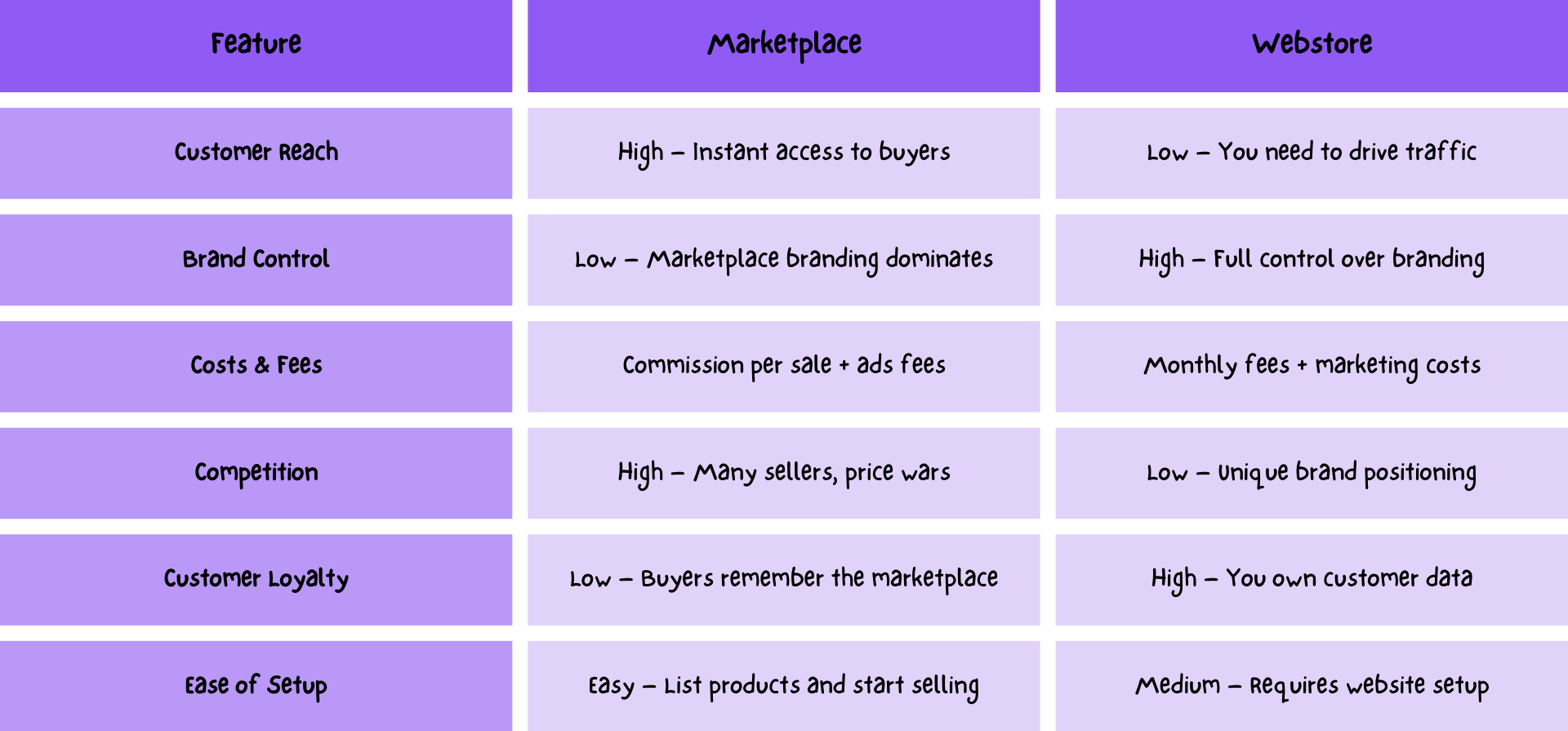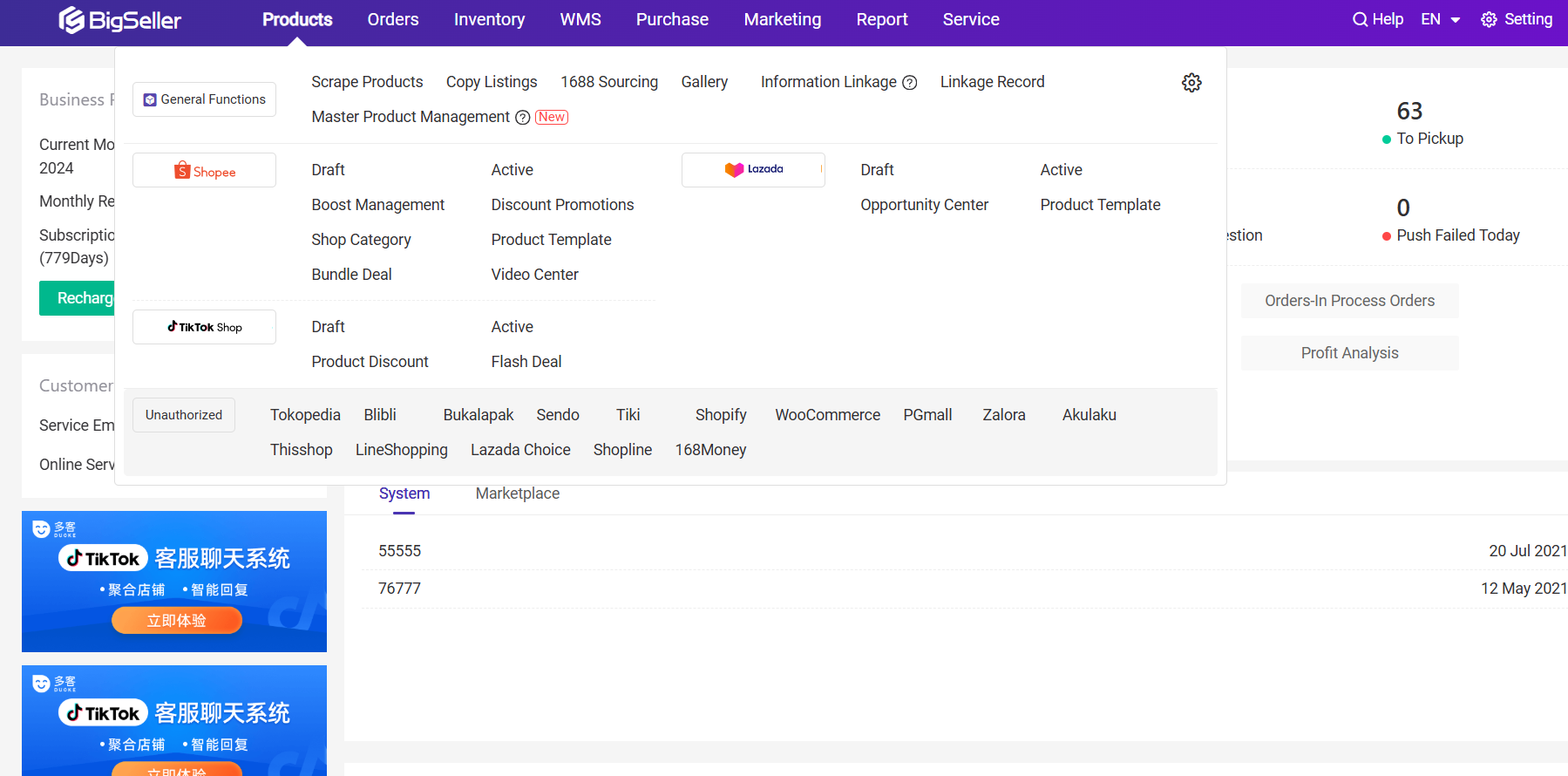Marketplace vs. Webstore: Which is Better for Your Business in 2025?
Erra 13 Mar 2025 05:58
If you're thinking about starting an online business in 2025, you’ve probably asked yourself: Should I sell on a marketplace like Shopee and Lazada, or should I create my own webstore? Both options have their pros and cons, and the right choice depends on your business goals. Let’s break it down so you can make the best decision.
What’s the Difference?
A marketplace is like a shopping mall where many sellers list their products. Examples include Shopee, Lazada, and TikTok Shop. These platforms already have a large customer base, so you can start selling quickly.
A webstore, on the other hand, is like your own branded shop. You control everything, from the website design to marketing and customer experience. Examples include Shopify and WooCommerce.

So, should you rent space in a busy mall (marketplace) or build your own store from scratch (webstore)? Let’s compare.
1. Customer Reach: Where Will You Get More Buyers?
Marketplace: You get instant access to thousands (or even millions) of active shoppers. Since people are already browsing Shopee and Lazada, your products have a higher chance of being seen.
Webstore: You have to drive traffic yourself. This means running ads, using SEO, or leveraging social media. It takes time to build a steady stream of customers.
Best for beginners: Marketplace, because you don’t have to spend a lot of money attracting customers.
2. Branding & Customer Loyalty: Who Owns Your Customers?
Marketplace: You have little control over branding. Customers remember Shopee or Lazada, not your business. Plus, the platform can change rules anytime, affecting your sales.
Webstore: You own your customer data, meaning you can build a loyal audience. You can offer discounts, collect emails, and run promotions without marketplace restrictions.
Best for long-term business growth: Webstore, because it allows brand-building.

3. Costs & Fees: How Much Will You Pay?
Marketplace: While it's free to list products, platforms take a commission from every sale. Some also charge advertising fees to get better visibility.
Webstore: You pay for a domain, hosting, and marketing, but you keep 100% of your profits. Platforms like Shopify or WooCommerce have monthly fees, but they can be lower than marketplace commissions in the long run.
Best for cost-saving: Webstore (if you have a marketing strategy) or marketplace (if you want lower upfront costs).
4. Competition: How Hard Is It to Stand Out?
Marketplace: You’re competing with thousands of sellers offering similar products. Customers can easily compare prices, and the lowest price usually wins.
Webstore: Less direct competition. If you have a strong brand and marketing strategy, customers will come to you instead of comparing multiple sellers.
Best for unique products: Webstore, because you control the customer experience.
Below is a comparison table for marketplace and webstore to make it even clearer for you:

Sell Everywhere, Manage Effortlessly with BigSeller
If you’re looking for quick sales and don’t mind following platform rules, an online marketplace is the way to go. But if you want full control over your branding and customer relationships, a webstore is the better choice. Many successful sellers start with a marketplace to gain exposure and later launch a webstore for long-term growth.
But if you’re considering selling in multiple stores, things might get messy fast. Updating stock across platforms, keeping track of orders, and making sense of your sales data can feel like a full-time job. That’s why BigSeller simplifies everything by keeping inventory in sync, automating order processing, and giving you clear reports so you always know what’s working.

No more overselling, no more manual updates, no more stress. Try BigSeller for free now and experience the difference!
📢 Stay updated with the latest e-commerce tips and features by subscribing to our WhatsApp channel today!


